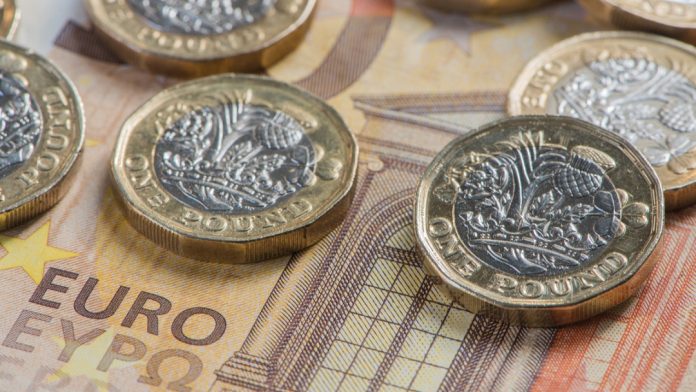- Pound (GBP) set for over 0.7% gains across week
- Credit cared & debit card spending drop 35% yoy
- Euro (EUR) under pressure
- German & Spanish GDP in focus
The Pound Euro (GBP/EUR) exchange rate is extending gains for a 5th straight session. The pair settled +0.15% higher on Thursday at €1.1315 towards the high of the day. At 05:15 UTC, GBP/EUR trades +0.1% at €1.1328. The pair is set to gain 0.7% across the week and 1.1% across the month of January – its fourth straight month of gains.
British households have cut debit and credit card spending sharply and the number of UK employees on furlough has risen sharply to its highest level since July following on from the new covid lockdown restrictions which started at the beginning of the month.
For a second consecutive week spending on credit and debt cards was 35% below February 2020 levels.
There is no high impacting data to be released today. Investors will remain focused on covid and vaccine developments, with Novavax’s 89.3% efficacy rate against covid offering some support.
The Euro traded mixed versus its major peers on Thursday, slipping versus the Pound yet rising versus the US Dollar.
German inflation rose at its fastest rate in many years in a sharp reversal of the past 5 months in negative territory. German consumer price index jumped to 1.6% in January, up from -0.7% in December. Analysts had only expected a rise of 0.5%.
The strong up-tick in inflation could give the European Central Bank more confidence reducing the odds of further interest rate cuts, fears of which weighed on the value of the Euro earlier in the week.
Today is another big data for Eurozone data. The preliminary reading of Q4 GDP for Germany will be closely watched. Analysts expect 0% growth quarter on quarter after 8.5% growth in the third quarter. This would result in a 4% GDP contraction on an annualised basis.
Spain’s Q4 GDP reading is also due with analyst penciling in a -1.5% contraction after a 16% surge in Q3. Annually Spain is looking at a record contraction of -10%





